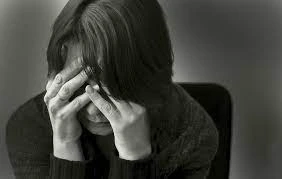Depression is basically a mental health disorder that impacts how you think, feel, and behave. It can lead to a variety of negative emotions and thoughts, including sadness, hopelessness, worthlessness, and guilt. Plus, it can also impact your physical health, leading to problems such as headaches, fatigue, changes in appetite or weight, and sleep problems. And also, If left untreated, depression can be debilitating and may even lead to thoughts of suicide. So, it is crucial to get treatment for depression as soon as possible.
There are a variety of different treatments for depression, including medication, therapy, and lifestyle changes.
Medication: Medication for deep depression is often the first line of treatment. If we talk about medication for deep depression, there are many different types of medication that can be prescribed by a doctor. The most common types of medication used to treat depression is:These medications work by increasing the levels of neurotransmitters in the brain, which helps to improve mood and alleviate symptoms of depression. Antidepressants typically take four to six weeks to start working, so it is important to be patient and continue taking them as prescribed.Mood stabilizers. Mood stabilizers are used to treat bipolar disorder, but they can also be helpful in treating depression. These medications work by regulating moods and helping to prevent episodes of mania or depression.Anti-anxiety medications. Anti-anxiety medications can be helpful in treating symptoms of anxiety and depression. These medications work by decreasing the amount of serotonin in the brain, which helps to decrease anxiety and improve mood.Anti-psychotics. Anti-psychotics are used to treat schizophrenia and other psychotic disorders, but they can also be helpful in treating depression. These medications work by blocking certain receptors in the brain, which helps to decrease symptoms of psychosis and improve mood.So, it is essential to work with a mental health professional to figure out which medication is right for you. Make sure not to take medication without the supervision of a doctor.
Therapy: Therapy is another effective treatment for depression. It can help you identify and change negative thought patterns, manage stress, and develop healthy coping skills. There are a variety of different types of therapy, includingCognitive-behavioural therapy (CBT): It is a type of therapy that helps you to change the way you think and behave. CBT is one of the most common types of therapy used to treat depression.Interpersonal therapy (IPT): IPT is a type of therapy that focuses on your relationships with others. It can help you identify and address problems in your relationships that may be contributing to your depression.Psychodynamic therapy: It is a type of therapy that focuses on your past experiences and how they may be affecting your current mental health.So, these are some of the most common types of therapy used to treat depression. You can talk to a mental health professional to figure out which type of therapy is right for you.
Lifestyle changes: Making lifestyle changes can also be very helpful in treating depression. Exercise, a healthy diet, and getting enough sleep are all critical factors in managing depression. Plus, avoiding alcohol and drugs can also help reduce symptoms of depression. So, it is essential to make healthy lifestyle choices if you want to manage your depression at the earliest.In conclusion, depression is a serious mental health disorder that can have a negative impact on your life. But, there are treatments available that can help you manage your depression and live a healthy and happy life. So, if you think you may be suffering from depression, then make sure to reach out for help as soon as possible and get the treatment you need.


